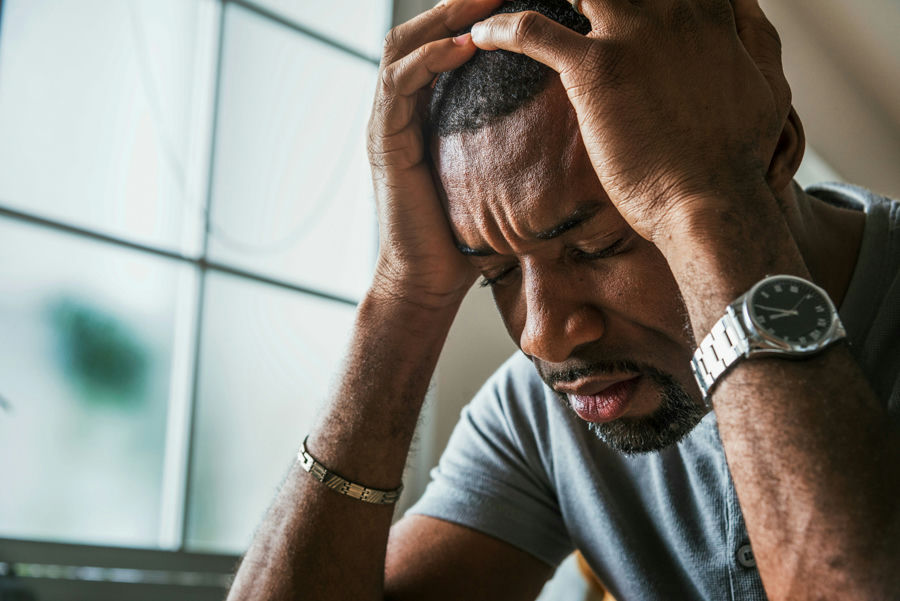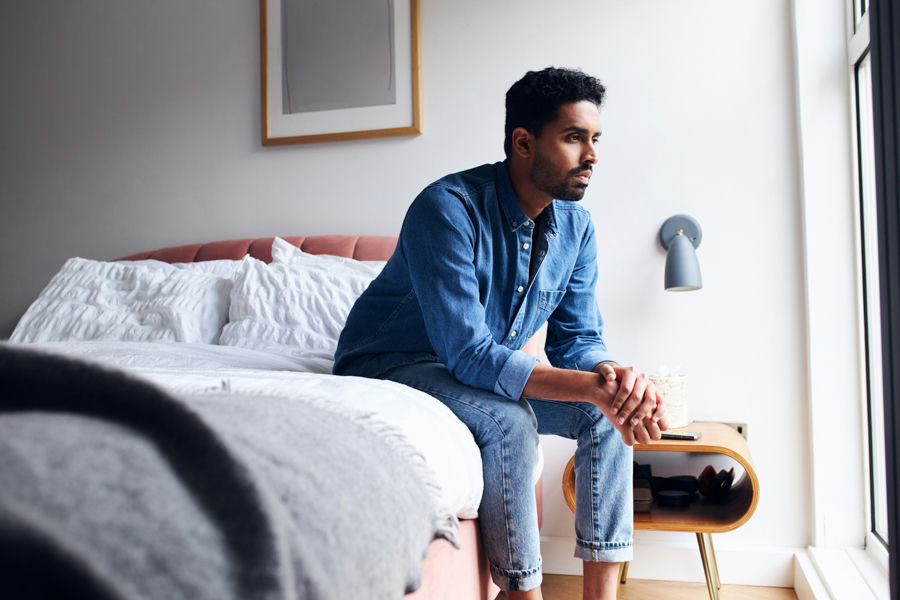Mental health challenges are a part of life for millions of people worldwide, affecting people of all ages, backgrounds, and walks of life. Two of the most common conditions people face are anxiety and depression. At first glance, these disorders may seem similar; they both impact mood, thought patterns, and daily functioning in ways that can be deeply disruptive. Both can lead to difficulty concentrating, strained relationships, and a reduced sense of well-being. However, while they share some overlapping features, anxiety and depression are distinct conditions that require different approaches for diagnosis and treatment. Understanding the nuances between the two is crucial not only for getting the right help but also for preventing symptoms from worsening and achieving long-term recovery. By recognizing the differences and similarities, individuals and families can better navigate treatment options and support loved ones in their healing journey.
It is also important to remember that these conditions do not define a person’s identity. With the right treatment and coping strategies, individuals can learn to manage symptoms, rebuild confidence, and reclaim joy in their daily lives. Mental health care is a journey, but it is one that can lead to resilience and renewed purpose.
What Are the Differences Between Anxiety and Depression?
Anxiety and depression are often referred to together, but they are not the same. Anxiety is characterized by persistent fear, nervousness, and worry about future events. It triggers the body’s fight-or-flight response, leading to restlessness, a racing heart, and difficulty concentrating. On the other hand, depression is marked by a persistent feeling of sadness, hopelessness, and lack of motivation. Depression pulls individuals into the past, focusing on loss or a sense of emptiness, while anxiety keeps people fixated on potential dangers in the future.
For example, a person struggling with anxiety may obsessively worry about upcoming deadlines, health scares, or social interactions. Someone with depression, however, may lack the energy to even begin their daily tasks, often feeling weighed down by guilt or a sense of worthlessness. While anxiety often revolves around hyperactivity and heightened arousal, depression is associated with fatigue, slowed movements, and withdrawal from activities.
How Are Anxiety and Depression Similar?
Despite their differences, anxiety and depression frequently overlap. It’s not uncommon for someone to experience both conditions simultaneously – a situation referred to as a dual diagnosis. In fact, research suggests that nearly half of people diagnosed with depression also experience symptoms of anxiety, and vice versa.
Both disorders disrupt daily life, impair relationships, and impact work or academic performance. They can cause difficulties with concentration, lead to sleep disturbances, and reduce overall quality of life. Physically, they may share symptoms such as headaches, digestive issues, or chronic pain, highlighting how closely the mind and body are connected.
The overlap in symptoms can make it challenging to distinguish one from the other. For example, sleep problems may come from restlessness in anxiety or from oversleeping in depression. Similarly, changes in appetite may manifest as stress-related overeating or loss of interest in food due to depression.
What Causes Anxiety and Depression?
The causes of anxiety and depression are complex and often interconnected. They typically develop from a combination of biological, psychological, and environmental factors.
- Biological Factors: Genetics play a significant role. Individuals with a family history of anxiety or depression are more likely to experience these conditions. Neurochemical imbalances in serotonin, dopamine, and norepinephrine levels can also contribute.
- Psychological Factors: Personality traits such as low self-esteem, perfectionism, or high sensitivity to stress increase vulnerability. Traumatic experiences, unresolved grief, and prolonged stress are also significant contributors.
- Environmental Factors: Life circumstances (such as financial strain, relationship difficulties, or job-related stress) can trigger both anxiety and depression. Additionally, substance use and chronic illness may worsen symptoms.
It’s important to note that while external stressors may ignite these conditions, the root cause often lies in how individuals process and respond to those stressors.
Signs and Symptoms of Anxiety and Depression
- Excessive worry about everyday situations
- Restlessness or a sense of being “on edge”
- Racing thoughts and inability to relax
- Sleep difficulties, such as trouble falling or staying asleep
- Physical symptoms like sweating, trembling, dizziness, or rapid heartbeat
- Persistent sadness, emptiness, or hopelessness
- Loss of interest in activities once enjoyed
- Fatigue and decreased energy
- Difficulty concentrating or making decisions
- Changes in appetite or weight
- Feelings of guilt, worthlessness, or excessive self-criticism
- Suicidal thoughts or behaviors in severe cases
The coexistence of both sets of symptoms often creates a cycle where anxiety worsens depression and depression worsens anxiety.

Types of Anxiety and Depression
Types of Anxiety:
- Generalized Anxiety Disorder (GAD): Characterized by chronic worry about a wide range of issues.
- Panic Disorder: Sudden, intense fear episodes known as panic attacks.
- Social Anxiety Disorder: Fear of judgment or embarrassment in social settings.
- Phobias: Intense fear of specific objects, places, or situations.
- Obsessive-Compulsive Disorder (OCD): Intrusive thoughts leading to repetitive behaviors.
Types of Depression:
- Major Depressive Disorder (MDD): Persistent sadness and loss of interest lasting two weeks or longer.
- Persistent Depressive Disorder (Dysthymia): Chronic low mood lasting for at least two years.
- Seasonal Affective Disorder (SAD): Depression triggered by seasonal changes, often in winter.
- Postpartum Depression: Depression occurring after childbirth.
- Bipolar Disorder: Alternating periods of depression and mania, though distinct from unipolar depression.
How Are Anxiety and Depression Treated?
Treatment for anxiety and depression often involves a combination of approaches. Because these conditions frequently occur together, integrated treatment is typically the most effective.
- Psychotherapy: Cognitive Behavioral Therapy (CBT) is one of the most common and effective approaches, helping individuals reframe negative thought patterns and develop coping skills. Other forms, such as Dialectical Behavior Therapy (DBT) and trauma-informed therapy, can also be beneficial.
- Medication: Antidepressants, such as SSRIs and SNRIs, are commonly prescribed for both anxiety and depression. In some cases, anti-anxiety medications or mood stabilizers may be recommended.
- Lifestyle Interventions: Exercise, nutrition, mindfulness, and regular sleep patterns can significantly reduce symptoms.
- Holistic and Integrative Care: Practices like meditation, yoga, and acupuncture can complement traditional treatments, supporting overall mental well-being.
At Elevated Wellness Clinic, treatment plans are personalized and may involve dual diagnosis care when both conditions are present. This ensures patients receive comprehensive support that addresses the root causes of both anxiety and depression.
How to Cope with Anxiety and Depression
Coping with anxiety and depression is an ongoing process that requires self-awareness, patience, and consistent strategies. These conditions don’t disappear overnight, but with the right tools and professional support such as anxiety therapy in Maryland, individuals can learn to manage their symptoms and improve their quality of life. Some effective coping tools include:
- Mindfulness Practices: Meditation, breathing exercises, and grounding techniques help calm the nervous system.
- Building Routine: A structured daily schedule promotes stability and reduces uncertainty.
- Staying Connected: Social support from friends, family, or peer groups can reduce isolation.
- Physical Activity: Regular exercise releases endorphins, which naturally improve mood.
- Limiting Substances: Reducing caffeine, alcohol, or drug use prevents worsening symptoms.
- Seeking Professional Support: Consistent therapy and medical follow-ups ensure continued progress.

Why Is It Important to Address Anxiety and Depression?
Leaving anxiety and depression untreated can have serious consequences. They can lead to difficulties in relationships, poor job performance, substance misuse, and physical health complications. Most concerning, untreated depression is one of the leading risk factors for suicide.
Early intervention makes a significant difference. With proper depression treatment in Maryland, many people go on to live full, healthy lives. Addressing both conditions together also prevents the cycle where one disorder perpetuates the other. Seeking treatment at a specialized center like Elevated Wellness Clinic allows individuals to receive tailored support that addresses both disorders simultaneously.
Dual Diagnosis Treatment at Elevated Wellness Clinic in Maryland
At Elevated Wellness Clinic in Hyattsville, Maryland, we understand the unique challenges that come with experiencing both anxiety and depression. Our dual diagnosis programs are designed to provide integrated care that addresses mental health disorders and any underlying conditions, such as substance use. By combining evidence-based therapies, medication management, and holistic approaches, our team helps clients achieve long-term stability and improved quality of life.
If you or someone you love is struggling with anxiety, depression, or both, know that help is available. With compassionate care and individualized treatment, healing is possible.
Contact Elevated Wellness Today for Anxiety or Depression Treatment
Elevated Wellness Clinic is here to help you navigate the challenges of anxiety and depression. Contact us today to learn more about our dual diagnosis treatment programs in Hyattsville, Maryland, and take the first step toward lasting wellness.

